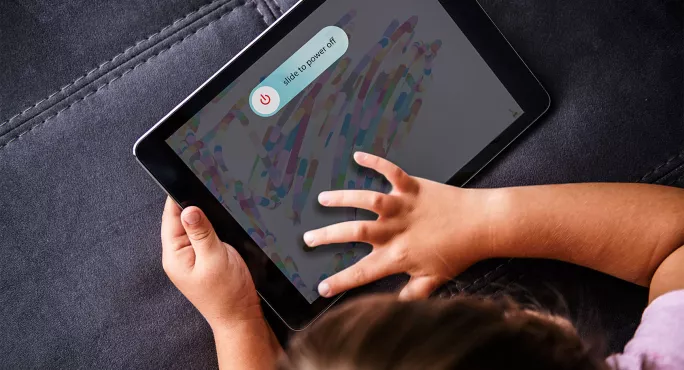- Home
- Leadership
- Strategy
- Why our primary ditched tech for the first two weeks of term
Why our primary ditched tech for the first two weeks of term

This year, at our primary school, we started the term with a new approach to technology in the classroom - we ditched it for the first two weeks.
We did this because I wanted the school to move away from being too reliant on technology from day one and instead develop a stronger focus on metacognitive strategies and learner attributes, so we could help pupils develop the essential skills needed for long-term success.
By going tech-free for the first two weeks, we provided pupils with the opportunity to focus on their thinking processes, self-awareness and learning behaviours, all of which are critical for academic achievement.
This meant that across the school, iPads and laptops were put aside and instead lessons focused solely on pupils developing strong communication skills with their teacher and one another, and being more active in their learning in those early weeks.
Lesson redrafting
For teachers, this meant having to adapt some lesson plans because anything that relied on iPads would not work.
To help with this, we made teachers aware of this upcoming change in the last academic term before summer and gave them internal and external training on metacognition to help them refine lesson plans.
We also made a concerted effort to inform parents about the tech-free approach to the first two weeks of school, knowing it might raise eyebrows when pupils mentioned it at home.
To ensure transparency, we communicated up front, through back-to-school parent sessions, newsletters and social media, clearly explaining our intention and the purpose behind the focus on metacognitive strategies and learner attributes.
By sharing this information early, we helped parents to understand how these two weeks would support their children’s long-term success by fostering self-reflection, problem-solving skills and learning behaviours before integrating technology.
This proactive communication not only reassured parents but also allowed them to feel involved in the educational approach we were taking.
What we learned
Across the school, teachers felt the new approach worked well, with two clear benefits reported.
The first was the boost in pupils’ ability to reflect on how they learn best.
Without the distraction of devices, they became more conscious of their thought processes, developing strategies for problem-solving, managing tasks and building resilience. Staff said they saw this self-reflection lead to greater independence among pupils and ownership over their learning.
The second was around collaboration and communication. Freed from screens, pupils engaged more fully in group activities, sharpening their interpersonal skills and learning to work more effectively as part of a team.
Their interactions were more meaningful, and they developed stronger relationships with their peers and teachers.
For pupils, while there was initial hesitation about setting aside their devices, they reported by the end of the period that they appreciated the opportunity to put the technology down for a while and connect with one another and their lessons more directly.
Looking ahead
After the two-week tech-free period, we’ve seen a noticeable shift in how teachers are choosing to reintegrate technology into their classrooms.
Rather than going straight back to the previous levels of device usage, many teachers are opting to use tech more strategically, for purposes like research, augmented and virtual reality, teaching the digital curriculum, and utilising adaptive technology programs that offer individualised learning pathways.
They’ve realised that great learning can take place without relying on iPads or laptops, and that tech-free activities encourage deeper thinking and engagement.
Feedback has been positive from pupils and parents too - so much so that we will continue with the initiative at the beginning of each term so we can ensure that each starts with a more personal connection in our learning, before we integrate technology.
After all, allowing the children to work collaboratively with others, communicate without technology and develop curiosity and creative skills is invaluable in building the 21st-century skills they will need as global citizens.
Lisa Thorpe is deputy head of primary and IB PYP curriculum coordinator at Swiss International Scientific School Dubai
For key school and trust leadership insights delivered every month, sign up for the Tes Leaders’ Briefing newsletter
Register with Tes and you can read two free articles every month plus you'll have access to our range of award-winning newsletters.
Keep reading with our special offer!
You’ve reached your limit of free articles this month.
- Unlimited access to all Tes magazine content
- Save your favourite articles and gift them to your colleagues
- Exclusive subscriber-only stories
- Over 200,000 archived articles
- Unlimited access to all Tes magazine content
- Save your favourite articles and gift them to your colleagues
- Exclusive subscriber-only stories
- Over 200,000 archived articles
topics in this article



